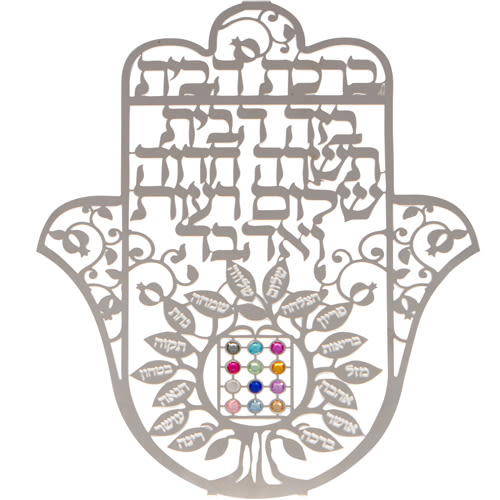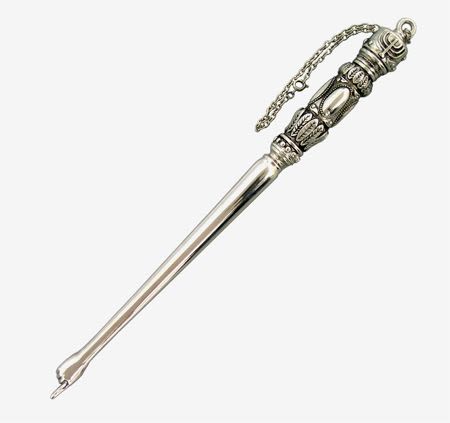
Job’s Friends
The Gemara says that there are no tribulations without prior transgression. But what about Job? He didn’t do anything wrong to deserve his suffering, or did he?

Probably one of the most ‘difficult’ things in our holy writings is the story of Job. Job is a pious man, trying to serve G-d to the best of his ability. Along comes the angel of the Sitra Achra, who makes some sort of bet with G-d that he can pull Job off his holy course by making him suffer.
G-d agrees – with the caveat that he can’t make Job ill – and the Sitra Achra goes off merrily to make the man suffer. And boy, does he make the man suffer. He  kills off all his flocks, making Job destitute. He kills Job’s wife and children, leaving him completely alone in the world.
kills off all his flocks, making Job destitute. He kills Job’s wife and children, leaving him completely alone in the world.
 kills off all his flocks, making Job destitute. He kills Job’s wife and children, leaving him completely alone in the world.
kills off all his flocks, making Job destitute. He kills Job’s wife and children, leaving him completely alone in the world.Job holds fast. Doesn’t even complain. The Sitra Achra goes back to G-d, and asks for permission to up the torture; it’s not enough that he took away all his money and killed off all his family. Now, he also wants to make Job sick and in pain. G-d agrees, but tells the Sitra Achra that he can’t actually kill Job.
The Sitra Achra sends Job terribly painful boils and illnesses; but initially, Job holds fast. Doesn’t even complain. But then, he’s visited by his ‘friends’ – one of whom is obviously quite fresh into Breslev teachings. Why do I say that? Because the friend challenges Job that he must have done something wrong to deserve all this suffering. Rav Arush teaches time and time again that there is no tribulation without prior transgression, and Job is clearly suffering tribulation after tribulation. This insult upon injury is too much for Job, and he finally – understandably – cracks. Job has been doing an awful lot of soul-searching, and he knows that he hasn’t done anything to deserve such terrible suffering.
In this lifetime.
Unbeknownst to Job, in a previous incarnation, he was Terach, the idol-worshiping father of our Patriarch Abraham. Not only did Terach worship idols himself, he had a whole business devoted to making and selling idols to other people. Idol worship was good business! Encouraging people to forget all about Hashem and worship bits of stone, metal and wood instead (as a convenient façade to do whatever it was they really wanted to do) was Terach’s stock-in-trade.
That’s what paid for the fancy house; that’s what paid for the servants; that’s what paid for the closets full of clothes, the stables full of donkeys and the lavish, sumptuous banquets.
This created an enormous spiritual ‘debt’ for the soul of Terach, and he had to pay it off when he was reincarnated as the holy, pious, righteous man Job. Terach’s tikkun, as Job, is to cling to Hashem when it’s not ‘convenient’ or ‘easy’ or apparently even ‘worthwhile’. There is still no-where else that he’d rather be, than by the side of Hashem, and Job’s suffering is so great, that he creates an absolutely enormous Kiddush Hashem, that continues to echo for millennia after he lived.
The story ends on a positive note; despite his one ‘wobble’ in emuna, Job continues to cling to Hashem, who in the end has mercy on him, heals him from his illnesses and gives him even more money, children and blessings than he had at the beginning.
Rav Arush always teaches that to relate to Torah as just a collection of interesting ‘stories’ is not just missing the whole point, it’s actually a terrible form of heresy. Torah is not history, or a series of literary endeavors replete with ‘motifs’ and ‘themes’ and all the rest of the nonsense that even some ‘frum’ Torah teachers claim it is.
Torah is about you and me. Period. The book of Job is about you and me. So it was that last week, I suddenly realized that I was playing the role of ‘Job’s friend’. Hashem had sent someone I know second-hand some very harsh suffering, and I was trying to work out what they could have possibly done to deserve it.
Maybe they didn’t have enough emuna? Maybe they were too arrogant? Maybe they weren’t keeping mitzvot properly?
You should know, the reason these things bother me so much is because I’m still petrified that what happened to them could G-d forbid happen to me. So I try to analyze these situations, to see if there’s anything that I can detect that needs strengthening in myself.
There is no tribulation without prior transgression.
But what if the transgression happened in a previous lifetime, and I have absolutely no clue what it was? How am I meant to know if I’m suffering for now, or suffering for then? How am I meant to know what I need to correct, on a soul level, if on a body level, I wasn’t even around when it was all happening?
The answer, the only answer, is emuna. To trust that Hashem does everything for the best, and that everything is kindness. But sometimes, it’s really kind of hard to see it.
The other thing I realized is that I can’t second-guess what’s going on with other people. My job is to analyze me, and my life, and the signs and hints that G-d is giving me, and me alone.
I know the things I have to fix and work on. Thank G-d, I do regular hitbodedut and Hashem usually uncovers them for me, without the need for too much digging. But even those of us that aren’t regularly talking to G-d still have a feeling, some inner knowledge about why things are happening to us.
Most of us are not Job. Most of us clearly have a lot of things to work on from this life, and we don’t have to worry too much that the things that are happening to us are because of the previous guy that had our soul.
But I think that far more of us do run the risk of turning into one of Job’s friends; where we arrogantly believe that we just know why the other person is suffering so much. And we don’t. We can’t. Not unless we are a genuine, lofty spiritual leader or a very righteous individual.
That’s my lesson that I learnt this week from the story of Job. I can do my best to decipher the hints that Hashem sends me in my own life, and to try and make teshuva as a result. But other people’s hints and situations are encoded just for them, and only they have been given the ability to decipher them.
My job is to pray for other people facing difficulties and hardships, to ask Hashem to have mercy on them, and to work on myself. As life goes on, I begin to understand more and more how little I truly understand. How can I judge another individual when I clearly have no idea what’s happening or why?
I can tell myself time and time again that there is no tribulation without prior transgression. But when it comes to other people and other situations, I’m going to leave it to the experts to explain to them what it is they might need to change, and how.











Tell us what you think!
Thank you for your comment!
It will be published after approval by the Editor.